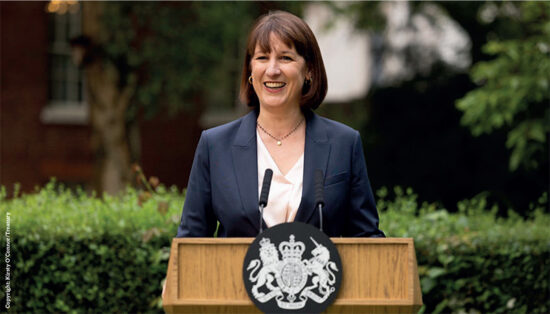Investors are continuously looking for the next ‘craze’ to diversify their portfolio and increase their returns.
Over the last year, the concept of music royalty investing has gone from an unknown to a conversation starter.
On 28 July 2020, Luxembourg-based ANote Music launched its platform in Europe to allow people to invest in the music royalty market.
The platform gives users the chance to invest in music, own rights from content creators, and earn returns through the royalties that are generated over time.
It is a trading platform built under the model of a stock exchange with a primary market and secondary market. This is all supported by blockchain technology to store proof of transactions.
International Adviser spoke to Marzio Schena, chief executive and co-founder at ANote Music, to discuss why the asset class is growing and what the future for the alternative looks like.
Creation
Schena said: “ANote Music is the point of the bridge between the music and finance. We identified that the music industry has primarily not much access to financial leverage.
“It is one of the few sectors on Earth that is still not using the concept of financial leverage, getting access to funding through investor and investment opportunities to foster growth.
“The idea came via listening to a song and I wanted to invest in that song because I thought it would win a contest in Italy. It was not possible to invest or do anything with the song, not even the artist.
“It is opening up a market which is already existing because music catalogue rights and contracts for receiving royalties have been exchanging hands behind closed doors between publishers and record labels for many years. What we are doing is opening up access to this market to externals.”
Portfolios
Schena was previously a fund manager at Woodpecker Capital, where he was managing an independent Ucits fund in Luxembourg.
He said that in the spectrum of investment opportunities, music royalty investing is “most similar” to real estate.
“From the point of view of cash flows, they are very similar,” Schena added. “This is because if you typically take other alternative investment asset classes like private equity or hedge funds, they all base the concept of making money and generating income out of cost of capital gain.
“Instead, real estate is one of the sector’s investment opportunities where you make money by rent. Music royalties have this passive income generation concept, which is the very basic of the financial system because instead of the of pursuing only capital gain, we are going back to the concept of cash flow.
“If I was an asset manager, like I was, I would consider the positioning of the music royalties as a real estate portfolio.”
Why are investors looking at this market?
There could be many people wondering why this market is good for investors and why there has been demand for the asset class.
Schena says investors are looking at music royalty investing because of “liquidity”.
“After you invest, whatever happens, in six months you will receive royalties,” he added. “This doesn’t depend on the artist; it depends on the fact that there are music rights.
“The right to receive the royalties that are generated is something very stable and helps with revenue and capital generation, which is very important and something that people have actually forgotten. This is because everybody is investing in something hoping that it will go up in the future.
“In our case, it is not like this. It’s very important to remember that cash is king. This concept of stability and the concept that if a catalogue of 10,000 songs had a customer base that may generate €10,000 (£8,578, $11,894) per month in the last 20 years, this is unlikely to disappear.
“Music consumption habits are kind of sticky. So, if you loved Rolling Stones yesterday, it’s very likely that you will love them in the future. The stickiness and the lack of correlation is also one of the factors that make royalties kind of an interesting opportunity.
“The growth that you see in the sector, thanks to streaming, many more people right now are adopting technology. You have a lot of gaps that need to be addressed, especially in southern Europe, where only one-in-seven people actually pays for a Spotify account.
“There is evidence that the gap with the Nordics will actually get smaller, because it is the opposite, as six-in-seven pay for their Spotify account. There are all these dynamics including growth, stability, lack of correlation and generational liquidity that make the topic important.”
Long-term investment
The concept of music royalty investment may seem like fun – but it’s not a “bet” on who will be a star.
There’s more strategy about the asset class.
Schena said: “On our platform, we only put catalogues that have a track record of at least three years right generation. We don’t deal with new catalogues yet for a simple reason that a lack of track record makes an investment in an artist, who is emerging or not yet famous, a bet.
“We didn’t want people to start betting only based on their tastes, you need to really be a record label the player in the industry for so many years to understand that maybe an artist has an advantage compared to another one.
“This is why for us cash flow and cash generation are key. This is why we go back to the concept of royalties, and this is actually helpful to understand the concept of medium-to-long term investment because what we provide is access to intellectual property music rights that are long lead.
“Typically, publishing rights last for 70 years after the death of the last author who composed a song. It’s definitely a long-lived asset by itself.”
Platform growth
In April 2021, ANote Music expanded into Japan and Asia through its joint venture with royalties transaction brokerage firm Royalty Bank.
The platform said it does have expansion ambitions.
Schena added: “The important factor to consider is that the music business is a huge market. It is mostly unexplored in the financial sector. There are a lot of funds that are tapping into the big catalogues market, together with the major record labels.
“But the world of the independent players, especially in Europe, it’s still not explored.
“Our primary focus right now is consolidation in Europe, which is a really big market. It’s bigger to the US if you take into consideration the publishing business. There is really a lot of opportunities already in Europe, where we don’t have catalogues yet, like for example, Germany, Spain, Belgium, the Netherlands, the UK, and the Nordics.
“This is where we are going and where we will be developing our business. It always makes sense for us to look into other business development opportunities and we will always keep eyes open.”








